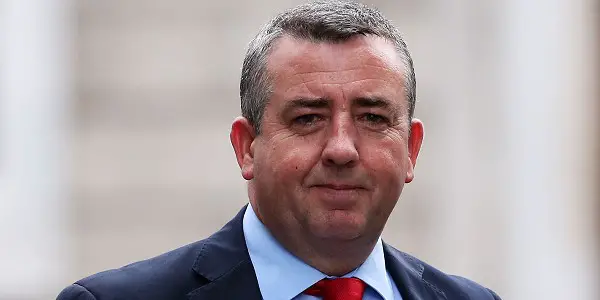Europe’s banking chiefs blocked Ireland from saving as much as 9.1 billion euro on crippling bank debts, the banking inquiry has revealed.
The marathon investigation found the Central Bank and Financial Regulator gave the country’s six main banks a clean bill of health when they were guaranteed in September 2008 – a move which ultimately cost citizens about 30 billion euro.
But the hardline stance of finance chiefs in Frankfurt made for some of the most damning findings.
The Oireachtas banking inquiry found the European Central Bank put the Fianna Fail-led coalition under undue pressure to accept tens of billions in bailout loans, but it also blocked burden sharing among international money lenders.
The inquiry repeated evidence that Jean Claude Trichet, the ECB chief in March 2011, told Finance Minister Michael Noonan that a “bomb would go off in Dublin” if senior bondholders – the first in line to have loans repaid – did not get their investments back.were burned.
It revealed advice from the National Treasury Management Agency (NTMA) that 9.1 billion euro might have been saved if the top lenders were forced to take a share of the losses.
During hearings former International Monetary Fund chief Ajai Chopra put the figure at about eight billion euro while Fianna Fail’s Michael McGrath said the savings in reality could have been about 3.7 billion euro.
It was the second time the ECB warned Ireland not to pass banks’ losses on to their paymasters, t he inquiry found, with a November 2010 letter from Mr Trichet carrying a threat to switch off billions in emergency cash which was keeping the Irish banks alive.
The inquiry said it was an “explicit threat” and that the ECB interventions were “critical”.
“These were all actions for which the Irish people ultimately paid and are still paying a heavy price,” the parliamentary inquiry found.
The committee accused the ECB of undermining its work by refusing to allow Mr Trichet to give evidence in Leinster House and it said there is a serious democratic deficit when it comes to the bank’s accountability.
After 18 months of work and 413 hours of hearings, the cross-party report found:
:: A culture of excessive executive pay and bonuses for bankers.
:: No one single event or decision led to banking collapse – it was the cumulation of events and decisions over a number of years.
:: Property or land valuations were not routinely carried out as the boom heightened, even for some large developments, and desktop and drive-by valuations were used without agents seeing inside the home.
There was a lmost universal acceptance until 2008 that the property bubble would end with a “soft landing”, which the inquiry called a “fatally-flawed” theory that was never substantially tested or challenged by government, the Central Bank or the Department of Finance.
The inquiry said the infamous September 2008 “n ight of the guarantee” was a “myth”.
The idea to protect the six main banks in a 440 billion euro blanket security was tabled as early as January that year, the inquiry found, and ultimately the “decision -makers” on the night based their plan on inaccurate information about the health of the banks.
The lack of an i ndependent, in-depth, deep-dive investigation into the state of the banks before that night was also criticised.
The committee published its report after Sinn Fein’s Pearse Doherty and Socialist Party TD Joe Higgins refused to give their support to the findings and recommendations.
Mr Doherty said: ” While the banking report touches upon of the relationship between bankers, developers and politicians, what it fails to do is examine those relationships. This is another fundamental failure of the report.”
Mr Higgins said banks had undue influence over government and while he praised the public hearings he said the inquiry ultimately failed to get to “the root cause and source of the infection”.
Chairman Ciaran Lynch defended the 6.5 million euro inquiry, which never had the power to blame individuals.
“The report was never from the outset about finding a specific smoking gun,” he said.
Mr Lynch rejected the idea that Ireland was bounced into a bailout, insisting that it had been inevitable, and also said a myth of t he bank guarantee night had been debunked.
“There is no certain formula to avoid another crisis but constant vigilance and early preventative action is critical,” he said.
Among the r ecommendations are for a new commercial property price register and for consumer champions to review how a perceived lack of competition in banking impacts customers.
The inquiry reserved some of its harshest criticism for the watchdogs of the time.
It said the Financial Regulator, headed then by Patrick Neary, had sufficient powers to crack down on the banking sector by imposing conditions or revoking licences or by suspending business or imposing fines for exceeding lending limits.
It said both the Central Bank and the regulator could have ordered banks to keep more cash to cover potential losses in the event of a crash.
